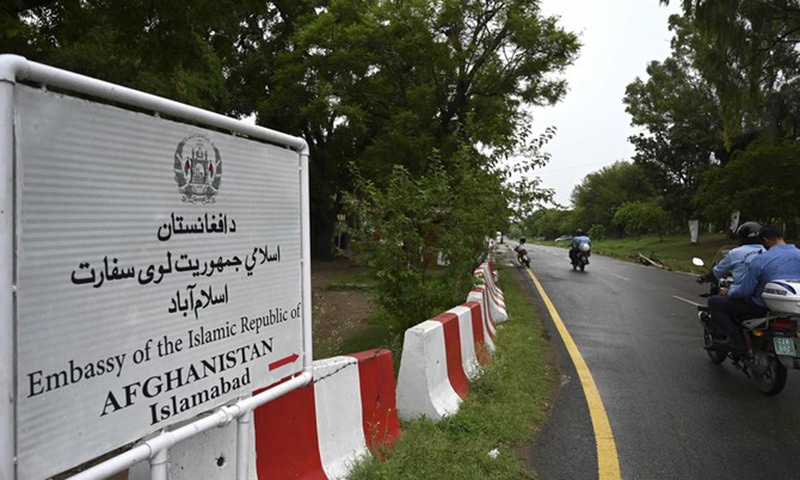LONDON: Afghan diplomats and officials appointed by the country’s former government are stuck in limbo around the world after assets were frozen in the wake of the Taliban takeover, The Times reported on Tuesday.
The US State Department is processing more than 100,000 applications from Afghans who fled Kabul, with many diplomats and former civil servants included in that figure.
But the rapid collapse of the former government — which they nominally represent — has left officials worldwide scrambling for money to pay sky-high rents on embassy offices, many located in expensive inner-city neighborhoods.
Many officials and staff in Afghanistan’s 45 embassies and 20 consulates worldwide have been forced to move into smaller, cheaper accommodation as funding collected before the asset freeze begins to run out.
Abdul Hadi Nejrabi, embassy deputy chief of mission in Washington DC, told the New York Times: “This is not something that we wanted. But it is something that came. We may not be able to continue for a long time — it will come to an end. There is still a lot of work to do. But we are here until we reach a path we can’t continue.”
Nejrabi said the embassy is generating about $2,500 in revenue per month from application processing — enough to pay basic running costs but not salaries.
The situation is worse in other countries, where embassy buildings are often rented rather than owned, leaving skeleton crews to process thousands of asylum applications without pay.
To resolve funding constraints, some ambassadors have sacked all local staff. Many rely on donations from other nearby embassies, and have begun to sell off embassy property to raise money.
One anonymous Afghan ambassador in Asia told Foreign Policy magazine: “Now, it’s like a firefighter with no water. You just run from one crisis to another, and then with no resources and no water, basically are trying to extinguish fires that are erupting everywhere.
“A lot of staff have not been paid for months and months. And the little money that we have with the embassy, we have to prioritize.
“For instance, we can’t pay their salaries but then find ways to pay their rent, at least, because they will be kicked out of their apartments; or we encourage them to move actually into smaller places, or if there’s a bigger place, two families to live there for a while.
“It’s not easy — the human toll is high. When you go to the office, people are worried about their families that are in Afghanistan.”




